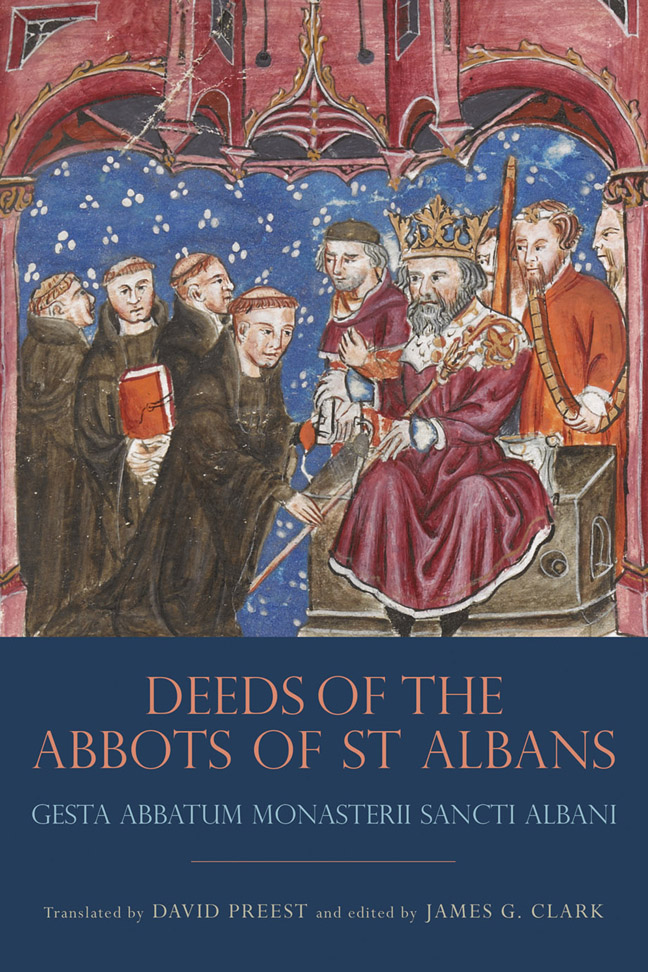Book contents
- Frontmatter
- Contents
- List of Illustrations
- Acknowledgements
- List of Abbreviations
- Introduction
- The Translation and its Sources
- The Deeds of the Abbots of St Albans
- Appendix A Thirteenth-Century Précis of the Deeds of the Abbots of St Albans: British Library, MS Cotton Vitellius a XX
- Bibliography
- Index
28 - Richard Of Wallingford
Published online by Cambridge University Press: 17 February 2024
- Frontmatter
- Contents
- List of Illustrations
- Acknowledgements
- List of Abbreviations
- Introduction
- The Translation and its Sources
- The Deeds of the Abbots of St Albans
- Appendix A Thirteenth-Century Précis of the Deeds of the Abbots of St Albans: British Library, MS Cotton Vitellius a XX
- Bibliography
- Index
Summary
The birth, education, learning, career and character of Richard of Wallingford, elected as the twenty-eighth abbot of the monastery of St Albans
This Abbot Richard came from Wallingford. His father William was a blacksmith; his mother was Isabella. For poor people they were well-off, though the rich thought their means modest, but they lived within their income and without quarrelling with their neighbours. When he was still only a lad of just ten, Richard lost his father. Because of his high promise and rare good nature he was adopted after a few years by William Kirkby of blessed memory, prior of Wallingford. With the support and help of his charity he studied grammar and philosophy at Oxford for about six years. As was the custom, he determined in arts and when he was twenty-three he bade farewell to the world and in this monastery of St Albans devoutly took the habit of a monk.
After three years engaged in claustral conversation he was sent again to Oxford to study letters by the abbot – Hugh, of blessed memory – and the convent, and for the next nine years he tirelessly applied himself to philosophy and theology, so that he might be competent enough to merit being admitted by the general agreement of the masters to lecture on the books of the Sentences.
I should not leave out how I heard from two people about his frequent moans and complaints. One of them told me how Richard regretted being sent back to Oxford from the cloister so early and so quickly, before he had been fully taught the monastic service of God, the other his regret at neglecting other branches of philosophy more than he should have done and devoting himself to the mathematical studies in which he was exceptionally learned, speculating on the conclusions of arithmetic, geometry, astronomy and music. We know about his mathematical knowledge from his writings and his work on instruments here. So led astray by his curiosity here, he was less proficient in the rest of philosophy and the study of theology, and he was sad about this. But by the common judgement of the masters he was deemed sufficiently capable in opposing and responding in the schools to be admitted to lecture on the Sentences and to assume the status of bachelor.
- Type
- Chapter
- Information
- The Deeds of the Abbots of St Albans<i>Gesta Abbatum Monasterii Sancti Albani</i>, pp. 661 - 723Publisher: Boydell & BrewerPrint publication year: 2019

